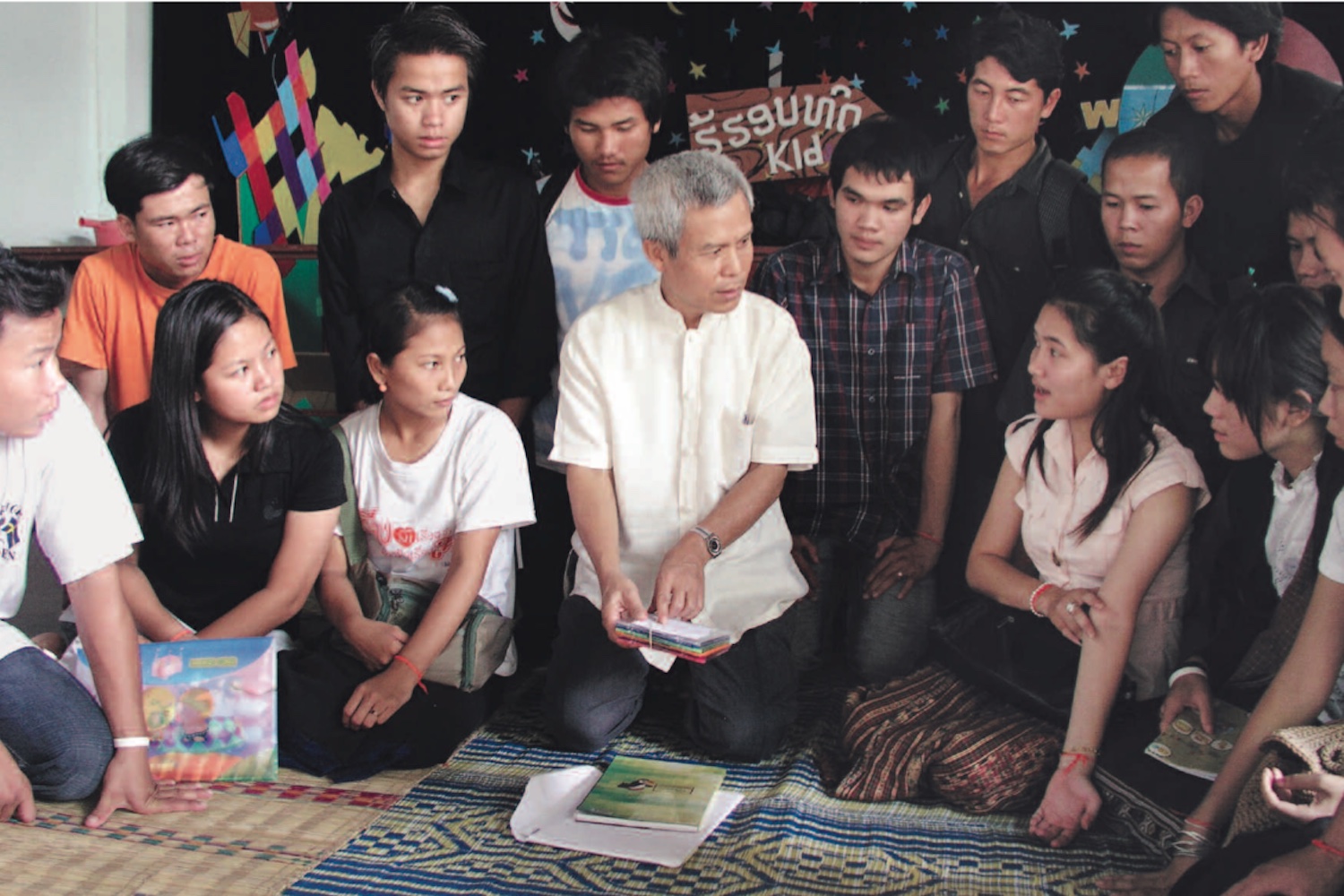Prachathai: 07 December 2017
Five years after the abduction of the prominent, internationally acclaimed Lao development worker Sombath Somphone by Lao state agents, the Lao government has done very little to find the truth, experts said. Meanwhile, the enforced disappearance of Sombath has raised debates about the Lao government’s ambition to boost its economy through development projects, while it continues to suppress civil rights.
15 December 2017 marks five years since Sombath was last seen by his family. On 15 December 2012, CCTV at a police checkpoint in Vientiane recorded footage that shows that state agents abducted Sombath from the street. His jeep was stopped and then he was escorted into a truck. According to Shui Meng Ng, Sombath’s Singaporean wife, a witness later saw Sombath and his jeep in a police holding centre.
“Although five years have passed, every day I’m still haunted by the images of what happened to him,” said Shui Meng at a conference ‘Sombath Somphone 5 Years On’ held in Bangkok on 7 December 2017.
Shui Meng, who was the Deputy Representative for UNICEF in Laos between 2000 to 2004, said the Lao authorities have always denied responsibility and refused to give her any information. “For me, it’s almost like the response is one of denial, denial, denial until people are tired of the case. Then the case will be literally disappeared, and Sombath will be forever disappeared. But I keep saying I don’t care how long it will take. I will continue to ask, to struggle and to campaign for the return of Sombath. I see this as the need to have truth and justice. I cannot not have the truth.”
She added that the Lao police have summoned her through the Singaporean embassy several times.
“This signal is very clear; if somebody like Sombath can be disappeared, anyone can be disappeared,” said Sombath’s spouse. She said the enforced disappearance of Sombath created a climate of fear among civil society workers when even a non-violent, non-confrontational high-profile civil society worker like Sombath, who never intended to enter politics, can be disappeared, adding that the climate of fear among Lao civil society is still strong even after five years have passed.
Charles Santiago, a Malaysian MP and Chairperson of ASEAN Parliamentarians for Human Rights (APHR), said the enforced disappearance of Sombath is clearly a state-sanctioned action. As an APHR member, Santiago has made multiple visits to Laos since 2012 to inquire about Sombath’s disappearance, as well as the broader situation for civil society, but has never received a satisfactory answer from the Lao authorities.
Santiago said Sombath is one of the leaders of ASEAN — a leading civil society worker of ASEAN. However, ASEAN failed to speak out for Sombath and has always avoided the issue, claiming its non-interference principle. “In this way, our dictators get away with murders with no accountability.”
In 2005, Sombath was awarded the Magsaysay Award for Community Leadership because of “his hopeful efforts to promote sustainable development in Laos by training and motivating its young people to become a generation of leaders”.
Son of a poor farmer family, Sombath received a scholarship to study at the University of Hawaii where he received a bachelor’s degree in Education and a master’s degree in Agriculture.
Sombath returned to Lao after the establishment of the one-party socialist regime and the end of the Vietnam War. Sombath’s work is mainly in the field of sustainable agriculture and development and education.
A lower-middle income economy, Laos is one of the fastest growing economies in Asia Pacific, with GDP growth averaging 7.8 percent over the last decade, through the exploitation of the country’s natural resources, mostly water, minerals and forests, according to the World Bank. In 2011, Laos announced its ambition to be the battery of a power-hungry Southeast Asia. Currently, the landlocked country has 16 hydroelectric dams. The construction of dams has led to environmental problems and forced resettlement which has affected the livelihood of local people. Without an independent media and freedom of expression, campaigns and discussions related to developmental problems are highly restricted. But Sombath challenged the government narrative of development.
“It strikes me that indeed Sombath was putting forward a different narrative. He was putting forward the people’s narratives–an alternative narrative, a narrative of hope, a narrative of empowerment, a narrative of sustainability and challenging Laotians, especially the young people, that it’s their country and it’s their land and they have to take control of their lands and environment,” said the Malaysian MP.
Anne-Sophie Gindroz, former Lao Country Director of Helvetas and author of “Laos, the Silent Repression” said she decided to author the book after the disappearance of Sombath to tell the dark side of the country to the world, especially to donor countries and aid agencies.
“I believe the aid agencies can do more than engaging in developmental projects. They have to also promote changes in democracy. It’s also important that Lao civil society is also empowered,” said Gindroz, “I think there is a fine line between cooperation and complicity.














